Navigating Alcohol Consumption During Antibiotic Treatment
When prescribed Macrobid (nitrofurantoin) for a urinary tract infection, many patients wonder about the safety of consuming alcohol. While moderate drinking might not directly interfere with the medication's effectiveness, it poses several health risks and may complicate recovery. This article explores the intricate relationship between Macrobid and alcohol, highlighting safety considerations, potential side effects, and best practices for maintaining health during treatment.
The Interaction Between Macrobid and Alcohol
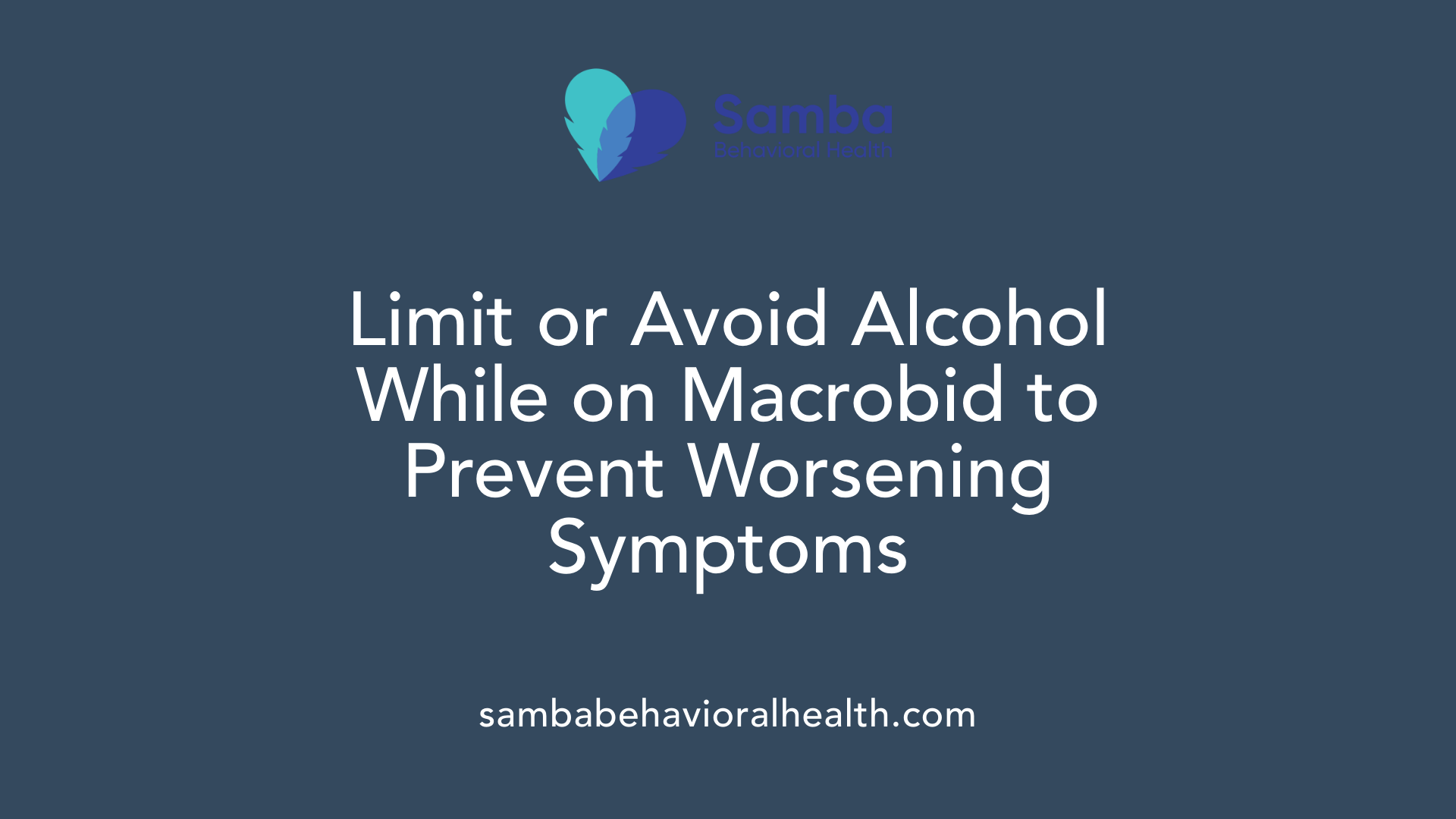
Effects of alcohol on Macrobid efficacy
While moderate alcohol consumption is generally not believed to directly impact the effectiveness of Macrobid (nitrofurantoin), alcohol can aggravate urinary tract infection (UTI) symptoms. Drinking alcohol may reduce the medication’s ability to combat the infection efficiently by increasing body acidity, which can worsen the infection and slow recovery. Additionally, alcohol may impair the immune system, making it harder for the body to fight off the bacteria causing the UTI.
Alcohol's impact on UTI symptoms during treatment
Alcohol consumption during a UTI or antibiotic course can lead to increased bladder irritation and dehydration. Such effects may heighten discomfort, including pain, urgency, and frequency of urination. Moreover, alcohol raises acidity levels in the body, potentially worsening symptoms of an infection. It may also interfere with normal hydration, which is critical during infection treatment for optimal healing.
Medical guidance on alcohol consumption with Macrobid
Most medical professionals advise avoiding alcohol while taking antibiotics like Macrobid. Although NHS guidance suggests that alcohol does not have a direct negative effect when consumed in moderation, caution remains essential. It is generally recommended to abstain from alcohol during treatment and for at least 48 hours after completing the prescribed course to allow the medication to fully work and to prevent side effects.
| Aspect | Advice | Additional Details |
|---|---|---|
| Drinking during treatment | Not recommended | May cause nausea, dizziness, or bladder irritation |
| Post-treatment period | Wait at least 48 hours | To ensure medication clearance and decrease side effects |
| Moderation | Limit to small amounts | One drink per day for women, two for men, if advised to drink |
| Precautions | Read labels for hidden alcohol | Cold medicines, mouthwashes, and other products may contain alcohol |
While moderate drinking might not severely interfere with the medication, prioritizing hydration and resting is crucial. Always consult your healthcare provider for personalized guidance to ensure safe recovery from a UTI.
Health Risks of Consuming Alcohol During Macrobid Treatment
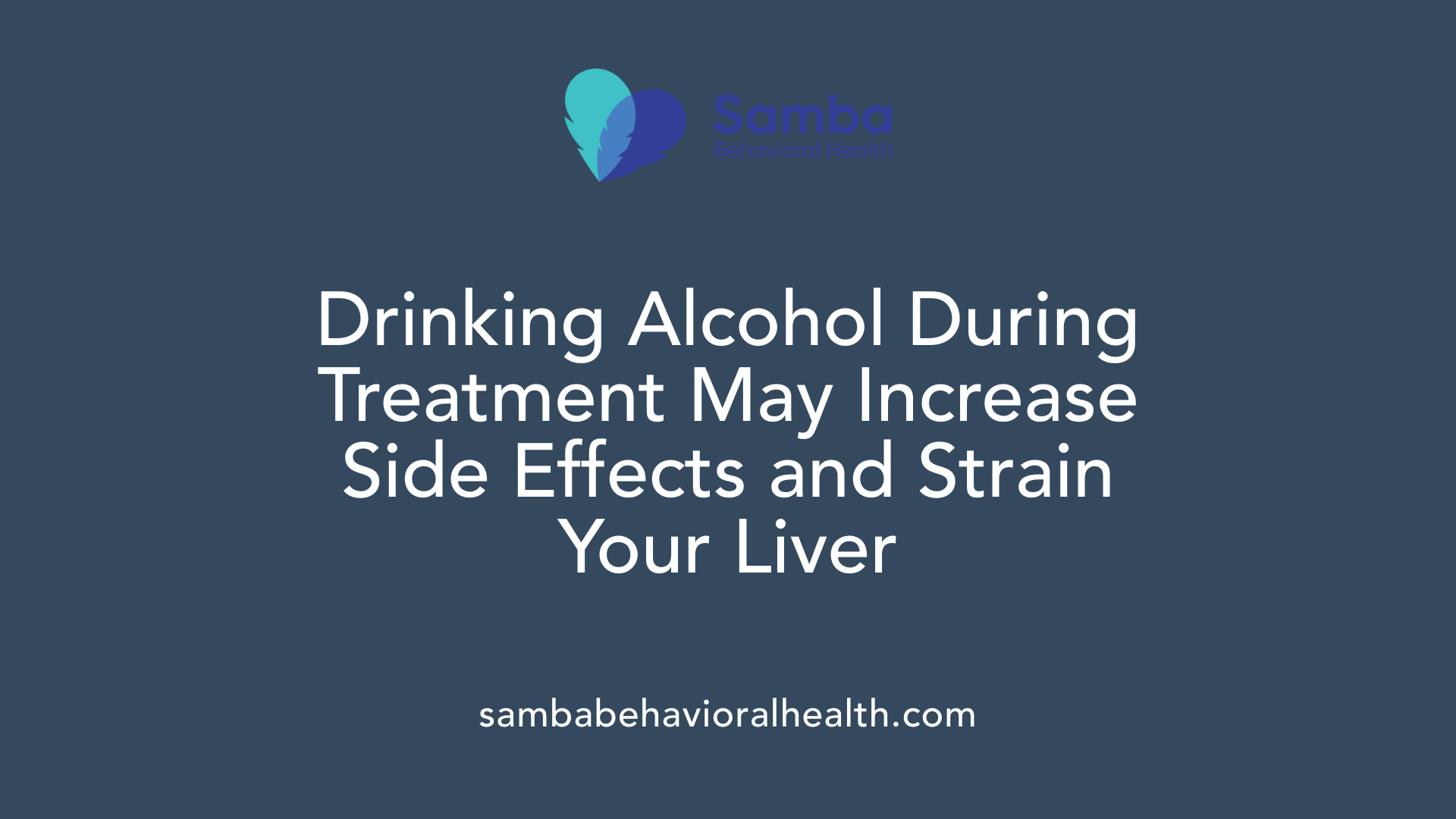
What are the health risks of drinking alcohol while taking Macrobid (nitrofurantoin)?
Although alcohol does not directly interact with nitrofurantoin according to some health organizations, consuming alcohol during treatment can still lead to several health issues. Drinking alcohol can heighten the risk of side effects like dizziness, nausea, and drowsiness. These effects can interfere with daily activities and impair your ability to stay alert.
Additionally, alcohol places extra demand on your liver, which is responsible for metabolizing both alcohol and medications like Macrobid. This added strain can increase the risk of liver damage, especially if alcohol is consumed in large quantities or regularly.
From a urinary infection perspective, alcohol can aggravate symptoms by increasing bladder irritation and urinary acidity. This can make the infection feel worse and hinder recovery.
Most importantly, drinking alcohol can contribute to dehydration, which is detrimental when fighting an infection such as a UTI. Dehydration can prolong recovery and worsen symptoms.
While moderate alcohol intake might be acceptable for some, it's safest to avoid alcohol entirely while on antibiotics and during the period you are experiencing symptoms. Waiting at least 48 hours after completing the medication course before drinking is generally advised.
Always consult your healthcare provider for personalized advice, especially if you have concerns or if you're taking other medications that could interact with alcohol.
Precautions and Recommendations for Alcohol Intake on Macrobid
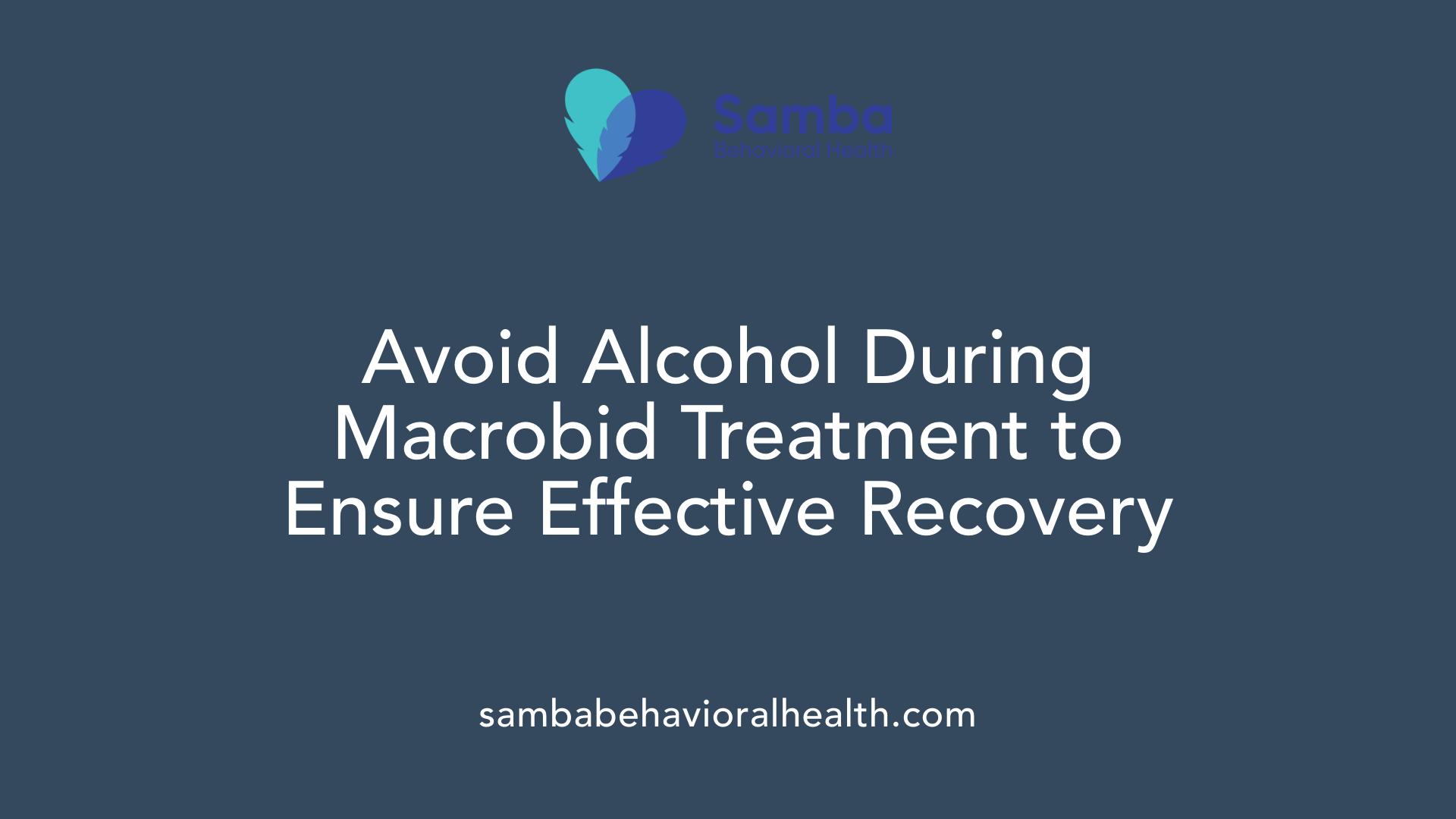
What precautions should I take regarding alcohol consumption during Macrobid treatment?
It is highly recommended to avoid alcohol while taking Macrobid (Nitrofurantoin). Alcohol consumption can reduce the effectiveness of the antibiotic in fighting urinary tract infections (UTIs). It can also increase the likelihood of unpleasant side effects such as nausea, vomiting, dizziness, and stomach pain.
Alcohol can irritate the bladder and raise urine acidity, which may worsen UTI symptoms. It can also cause dehydration, hindering recovery by impairing the body's ability to heal the infection.
Most healthcare professionals advise not drinking alcohol during the course of treatment and for at least 48 hours after finishing the medication. This precaution helps ensure the medication works effectively, reduces potential side effects, and supports your body's recovery process.
Even moderate alcohol intake may not be completely safe during UTI treatment. While some sources suggest that small amounts of alcohol might not cause direct interactions, the risk of worsening symptoms and side effects is significant enough to recommend abstinence.
To stay safe and promote healing, consult your healthcare provider for personalized guidance, especially if you have concerns or other underlying health conditions.
Why is it important to avoid alcohol during UTI treatment with Macrobid?
Alcohol can interfere with your immune response and slow down recovery from infection. It can also put extra stress on your liver, which is already working to process the medication.
Staying well-hydrated, resting sufficiently, and following medical advice are crucial during this period. Avoiding alcohol can help prevent dehydration and bladder irritation, easing the symptoms of UTIs and supporting faster healing.
In summary, to maximize treatment success and minimize discomfort, steer clear of alcohol during your course of Macrobid and for at least two days after finishing the medication. Always check with your healthcare provider if you're unsure about alcohol use while on antibiotics.
Effects of Alcohol on the Effectiveness of Macrobid and Infection Management
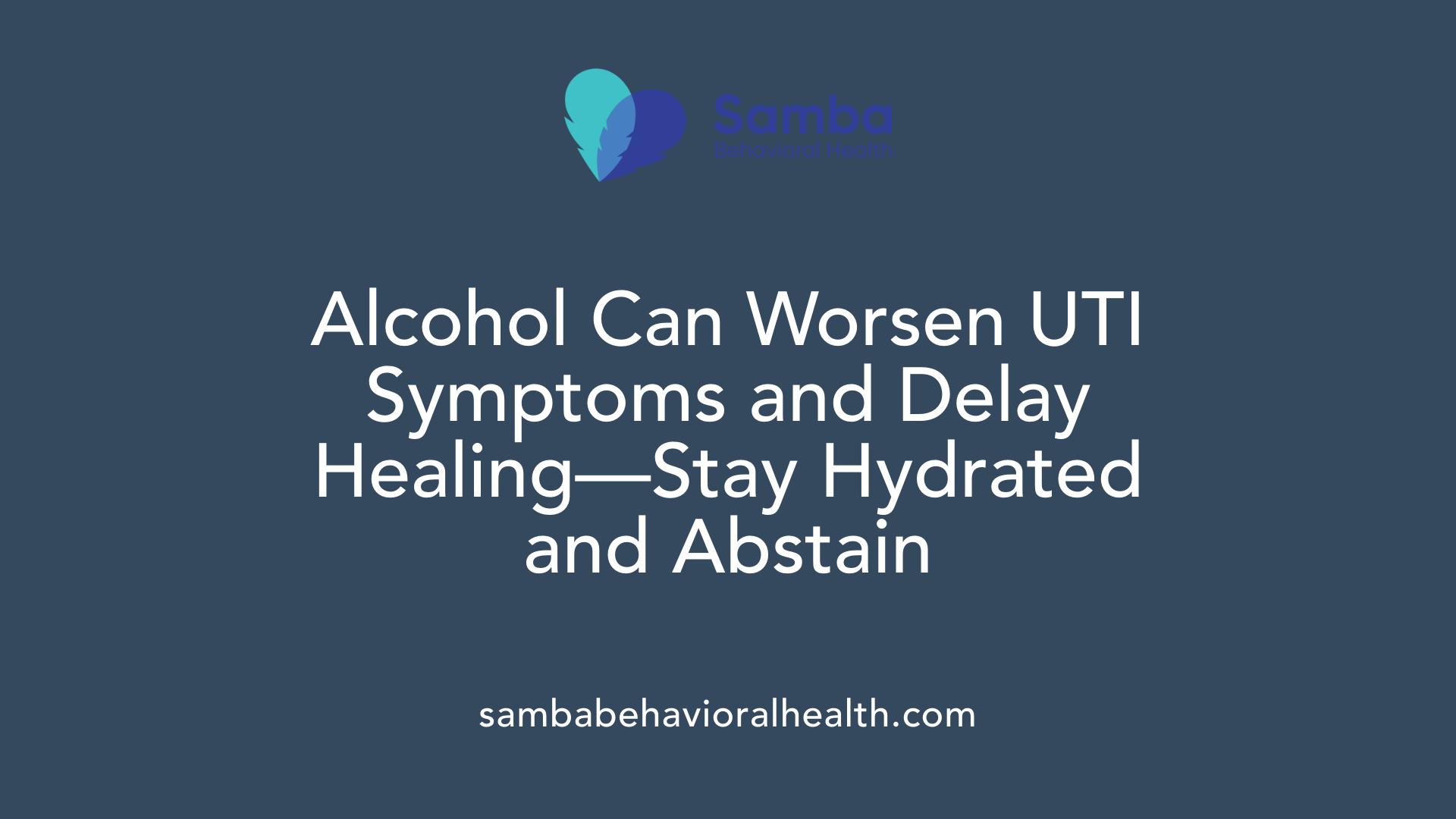
Can alcohol affect the effectiveness of Macrobid in treating infections?
While alcohol does not directly impair the ability of Macrobid (Nitrofurantoin) to fight infections, there are several reasons to exercise caution. Consuming alcohol during a urinary tract infection (UTI) or while on medication may not diminish the medication’s performance specifically, but it can influence overall recovery.
Alcohol can irritate the bladder and urinary tract, which might worsen symptoms such as pain or discomfort. This irritation could also make the healing process more difficult. Furthermore, alcohol increases the risk of side effects like nausea, dizziness, headache, and stomach pain, all of which can be disruptive when your body is trying to recover from an infection.
For these reasons, health professionals recommend avoiding or limiting alcohol while undergoing treatment for a UTI with Macrobid. Waiting at least 48 hours after completing the antibiotic course is advisable before resuming alcohol consumption. Always consult your healthcare provider for personalized guidance, especially if you have underlying health conditions or experience severe symptoms. Moderate drinking — generally one drink per day for women and two for men — may be acceptable after recovery, but this should be confirmed with your doctor.
In summary, alcohol may not directly interfere with the medication’s action but can exacerbate symptoms and side effects, potentially delaying full recovery. Responsible and informed drinking, aligned with medical advice, is best for ensuring effective treatment and swift resolution of the infection.
Side Effects and Adverse Reactions from Combining Macrobid and Alcohol
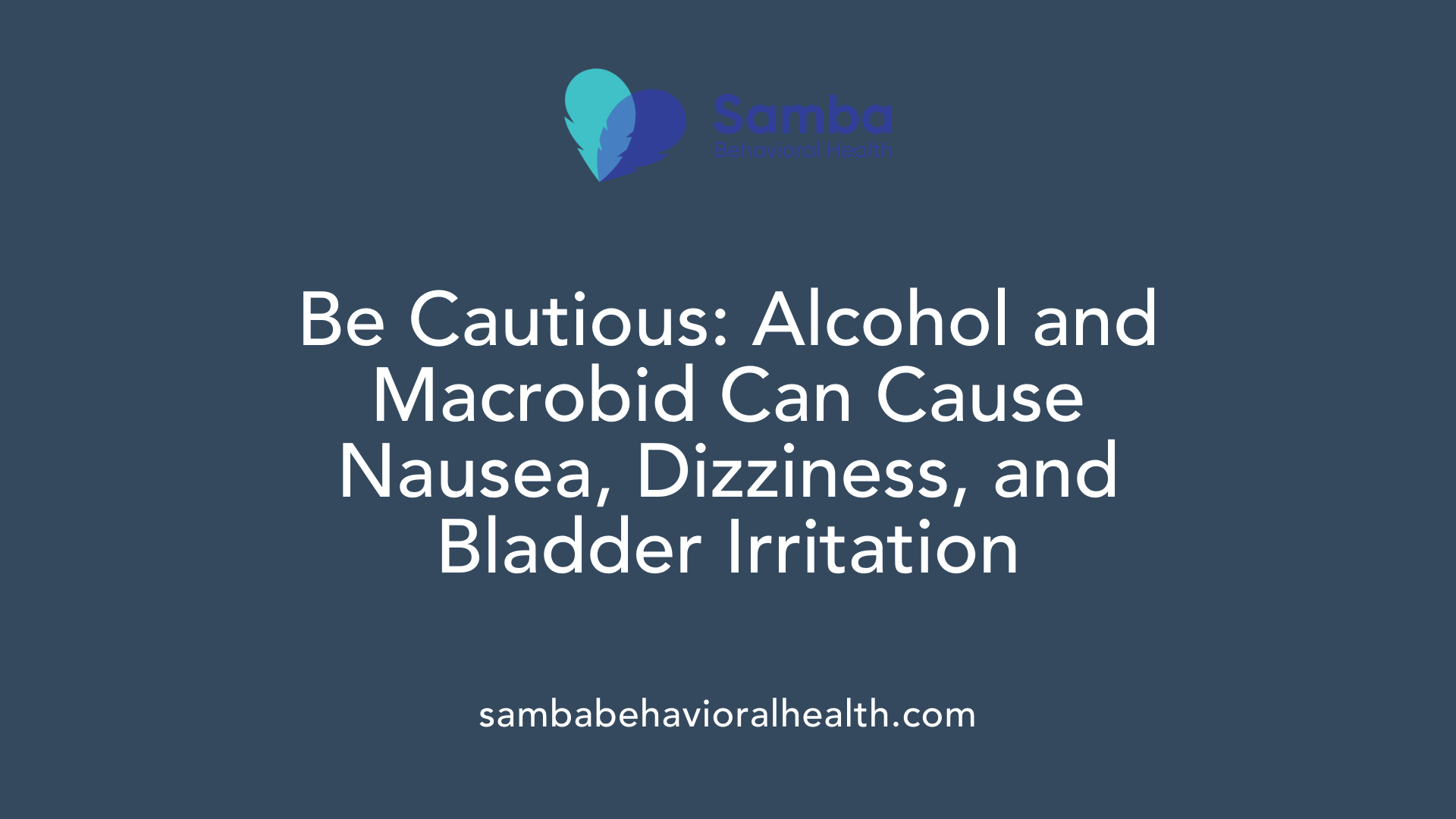
Are there any side effects or adverse reactions from combining Macrobid and alcohol?
Combining Macrobid (nitrofurantoin) and alcohol can lead to a variety of undesirable effects. Alcohol consumption while on this medication may increase the risk of experiencing nausea, vomiting, stomach pain, and dizziness. These symptoms are common side effects that become more pronounced when alcohol is involved.
Moreover, alcohol can irritate the bladder and urinary tract, which can worsen symptoms of a urinary tract infection (UTI). This irritation not only prolongs discomfort but may also hinder recovery.
Another concern is the strain alcohol puts on your liver. Since the liver processes both alcohol and medications, drinking alcohol during Macrobid treatment can increase the risk of liver damage and impair liver function. This is especially problematic when your body needs to metabolize antibiotics effectively.
While alcohol does not have a direct interaction that reduces how well Macrobid works, it doesn't mean it is safe to drink freely during treatment. It’s usually advised to avoid alcohol entirely during the course of antibiotics and to wait at least 48 hours after finishing the medication before drinking. Doing so helps ensure the medication’s effectiveness and reduces the risk of adverse reactions.
In summary, it's best to steer clear of alcohol while managing a UTI with Macrobid to prevent complications and support your body's healing process.
Prioritizing Safety and Recovery
In summary, although moderate alcohol consumption may not immediately diminish the effectiveness of Macrobid, the potential risks and side effects make it advisable to avoid alcohol during treatment. Alcohol can exacerbate symptoms, impair recovery, and increase strain on the liver and urinary system. Waiting at least 48 hours after completing your course of antibiotics before drinking alcohol is a prudent measure. For personalized advice and to ensure safe recovery, consult with your healthcare provider, prioritize hydration, and give your body the necessary time to heal properly.
References
- Mixing Nitrofurantoin and Alcohol | Dangers & Side Effects
- Nitrofurantoin and Alcohol: Can You Drink While Taking It?
- Can You Drink Alcohol While Taking Macrobid? - Moving Mountains
- Antibiotics and alcohol - Mayo Clinic
- Nitrofurantoin and Alcohol: Can You Drink While Taking It?
- Nitrofurantoin and Alcohol: Can You Drink While Taking It?
- Antibiotics and alcohol - Mayo Clinic
- Common questions about nitrofurantoin - NHS
- Mixing Nitrofurantoin and Alcohol | Dangers & Side Effects
- Nitrofurantoin and Alcohol: Can You Drink While Taking It?
